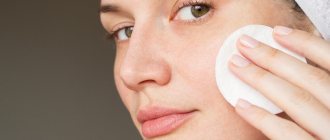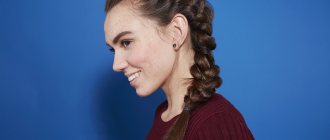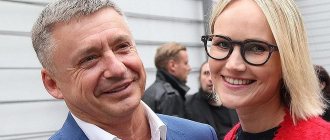Biography
Born in Kharkov on October 15, 1960.
In 1983 he graduated from the pediatric faculty of the Kharkov Medical Institute.
He began his career in 1980 as a nurse in the intensive care unit. Since 1983, he worked at the regional children's infectious diseases clinical hospital in Kharkov. Until 1991, he was a doctor in the intensive care unit, and over the next ten years, he was the head of the infectious diseases department. Since 2000, he conducted a pediatric consultation at a private medical center, and in 2006 he opened a consultative medical center - the Komarovsky Clinic - “Clinic”.
Candidate of Medical Sciences (1996).
The author of numerous scientific works, including the monograph “Viral Croup in Children,” as well as popular science articles and books, the most famous of which, “The Health of the Child and the Common Sense of His Relatives,” has gone through more than 30 reprints in Russia and Ukraine.
Evgeniy Olegovich is the author and presenter of a number of television programs. “The School of Doctor Komarovsky,” which started in March 2010, was awarded the Teletriumph Prize three times and enjoys well-deserved trust among television viewers in Ukraine, Russia, Kazakhstan, Moldova, Israel, Canada and other countries.
Bibliography
- Viral croup in children. Clinic, diagnosis, treatment tactics. Kharkov, 1993.
- The beginning of your child's life. Kharkov, 1996.
- The beginning of your child's life. Audiobook. Kharkov, 2008.
- Beginning of life. Your child from birth to one year. Book+DVD. Moscow, 2009.
- The health of the child and the common sense of his relatives. Kharkov, 2000.
- The health of the child and the common sense of his relatives. Kharkov, 2007. Revised and expanded edition.
- The health of the child and the common sense of his relatives. 2nd edition, revised. and additional Kharkov—Moscow, 2010.
- Disposable diapers. Popular user guide. Kharkov, 2002.
- ORZ: a guide for sensible parents. Kharkov—Moscow, 2008.
- Diary. Our notes about our child. Kharkov, 2008.
- A book for the runny nose: about children's runny nose for moms and dads. Kharkov—Moscow, 2008.
- Cough book: about children's cough for moms and dads. Kharkov—Moscow, 2008.
- 36 and 6 questions about temperature. How to help your child with fever. Kharkov—Moscow, 2008.
- A handbook for savvy parents. Part one. Growth and development. Analyzes and examinations. Nutrition. Vaccinations. Kharkov—Moscow, 2009.
- A handbook for savvy parents. Part two. Urgent Care. Kharkov—Moscow, 2010.
- Little tales about hedgehogs. Kharkov, 2012.
- A handbook for savvy parents. Part three. Medicines. Kharkov—Moscow, 2012.
- Medicines in pediatrics. Kharkov—Moscow, 2013.
- About vaccinations for the sensible and inquisitive. 2014.
- 365 tips for the first year of your child's life. Kharkov, 2018.
The books “The Health of the Child and the Common Sense of His Relatives” and “CHI: A Guide for Reasonable Parents” have been translated into Ukrainian and Chinese. The book “The Beginning of Your Child’s Life” has been translated into Polish.
The text of the unpublished book “Unprepared Help” is also available on the site.
Author's TV projects
- School of Doctor Komarovsky. Inter, 2010—2013. Since 2014, the project has been carried out without the support of any TV channels and is completely copyrighted.
- Morning at Inter. Inter, 2012.
- Emergency care with Dr. Komarovsky. Inter, 2014.
About the Komarovsky system and reality
Hello, Evgeniy Olegovich.
I would like to share my experience of “raising” children according to your system and my fears and inconsistencies with reality. Our child is now 3 years 4 months old. From the first day we live “according to Komarovsky”. At the age of 2.2, the child went to kindergarten, the mother returned to work from maternity leave at 2.6. And while my mother was on maternity leave, I managed to implement all your principles and recommendations. And everything was fine. The necessary parameters in the child’s room, vaccinations, not wrapped, a lot of walking, etc. But as soon as “normal” life began: mom and dad are at work 5 days a week, we live in a metropolis (St. Petersburg), then the main drawback of your advice immediately became apparent: their incompatibility with the realities of our lives. And a lot of things went to hell as soon as the child went to kindergarten. The most ordinary kindergarten, in which there is no humidifier, air conditioning, in groups of 25 children, the bedrooms are not ventilated, there is a valve that regulates the temperature, but it is firmly attached and does not spin, and no one makes such an attempt, unless something breaks - the pipes are old. There is no point in fighting with teachers: they will not do all this for their own money! The manager said that in order to replace the pipes, an application must be made, approved, included in the schedule, money allocated, etc. Our kindergarten is already on schedule, everything has been allocated, approved and renovations will be done... next summer!!! Wait a year. At the very first meeting, we raised the issue of a humidifier, not only did we have to practice eloquence for about 30 minutes, explaining what this thing is and why it is needed, when we were convinced, the next step was: “San Sanych, give me a chervonets, I’ll buy a kerosene stove”…. and the amount is ridiculous: 200 rubles per parent, so they heard this: “you’re so rich, you should buy it,” “the children will leave in a couple of years, and we’ll just leave it all to the kindergarten, to other children?! no one left anything to ours,” etc. As a result, we bought a humidifier and a weather station ourselves, deciding that the family would not become poor for 3 thousand. So what do you think, buy it, buy it, so someone should take care of it, fill it with water! And it turned out that teachers constantly “forget”, nannies working for 2 groups do not need this at all, as a result, every morning dad/mom, when bringing the child, goes to the group and fills the humidifier. It's enough for a day. The next day again. Air conditioning - well, it’s really luxurious to buy at your own expense, but parents have the same objections (see above). Walking is also a problem. It’s impossible to go for a walk in any weather; almost all mothers are against it. Well, naturally, the teacher will not leave half of the children in the group unattended, but will go for a walk with the other half. And now the child very often has snot. He constantly complains that it is hot for him to sleep in kindergarten. By the way, the issue of staying on the street is the most painful and most unrealizable, in the form you recommend. Children walk in kindergarten for 3-4 hours at best, and then only under good weather conditions. In order for a child to be outside a lot of time, one of the parents needs to leave work! Mom leaves at 7:30, takes the child to kindergarten, returns home at 8 pm, runs after the child, goes to the store, cooks dinner, etc. Dad usually comes closer to 22-00. And so on all week. So where are the walks??? Grandmothers all live in other cities. So the mother has to show mental qualities - sacrifice, heroism - and during the week go to bed no earlier than one in the morning in order to redo all the household chores and free the weekend from work, so that at least on these days the child is outside for the required amount of time. And the further you go, the more problems there are with the implementation of your recommendation to go for a walk. You often accuse parents of laziness, that it is more convenient and easier for them when the child is at home watching TV than going out with him somewhere. It's not just about laziness! Here we are, as I already wrote, we live in a metropolis, and when you go down to the subway and every month at some station you see an announcement: “Attention, a child has gone missing,” when in your own entrance a second-grader girl is found dead at a construction site, raped by a migrant worker , then you will think 100 times about what kind of child you want: dead, but previously healthy, or maybe not very healthy, covered in snot, but alive and unharmed, sitting by the TV in sight. And many people think like this: there is no opportunity to go for walks with the children every day in the required quantity, there are no grandparents, and letting them go alone is scary. It’s also not possible to be friends with our local doctor; you constantly climb into the barricades. How to be friends with a doctor who is on first-name terms with you, doesn’t greet you when he comes home, constantly scolds that the child is barefoot and the balcony is open... Do we have to prove and explain something to him - why do we need it? For every slightest runny nose, the first recommendation is to sit at home, put socks on your feet, do not bathe for 3 days, and do not go for walks. I feel that in this situation, by the end of kindergarten, the child will turn from healthy into a non-functional child. I don’t know, maybe we somehow understand and do everything incorrectly, but somehow, with our correct views on the upbringing and treatment of a child, we cannot fit into reality. Best regards, Yulia. published 06/09/2013 12:47 updated 04/06/2014 — Reports and “thank you”
Autobiography
None of my ancestors ever had anything to do with medicine. And I never cease to be amazed by this. Because very, very often it seems to me that the desire to heal is genetically embedded in me. I'm pretty sure I was already a doctor...
But this is all from the realm of the subconscious. In reality, everything is quite conscious: a friendly family, father and mother are engineers, a younger sister, a beloved grandmother, grandfather’s orders, a pioneer childhood, a very high school.
My mother, before becoming an engineer, graduated from the Institute of Culture and worked as a librarian for several years. The consequences of my mother’s library education are a huge home library, a cult of books and my passion for reading, including at night - with a flashlight and under the blanket.
My future choice of profession was influenced primarily by my younger sister. She was born when I was 10 years old, and the feeling of inexplicable love for her and fear for her is still perceived by me as the most powerful emotional shock of childhood.
By the time I graduated from school, there was basically no choice: Kharkov Medical Institute, Faculty of Pediatrics. Or a completely logical alternative option - service in the Soviet Army.
When preparing for the entrance exams, I remember the feeling that childhood was over. I also remember the words of physicist Pyotr Samuilovich (now he is a professor somewhere in the USA): “Zhenya, you have a bad habit of sleeping at night...”.
The year I entered the institute - 1977 - was special. The day before the rector had changed, there were rumors about bribes in the admissions committee; at least there was a chance of objectivity when taking exams. This was later confirmed: two B's in essay and physics, and two A's in chemistry and biology. I got in!
Medicine
I do not at all perceive my student years as the best and most fun. Like years of hard work - yes. Feelings: a huge amount of useless information, the insanity of the “history of the CPSU” department, the nausea of Komsomol and trade union meetings, the conspicuous dislike of many teachers for their profession, professors who have difficulty speaking and giving lectures from books. And in parallel with this - intellectuals, people who love students and their work, the joy of joining the profession.
From the 2nd year I began to be on duty in hospitals. He held hooks for surgeons, helped nurses (not for money, for himself).
Real work, already for a salary, began after the third year and continued until graduation. First, for a year as a nurse in the intensive care unit of a children's road hospital, and then in the intensive care unit of the Institute of General and Emergency Surgery. Reanimation forced me to look at myself and at medicine in a new way. 10 nights every month surrounded by real doctors, awareness of the value of the information received, joy when someone regained consciousness, the significance of mistakes - human and medical. Death... Children, pregnant 18-year-old girls, old people, alcoholics, big men.
The absolute norm, when they forgot to even say thank you, and a shrill cry: “Murderers!” - the cry of a woman who did not seek help for four days and, on the advice of her grandmothers, covered a three-year-old boy who was struggling in convulsions with a black rag...
By the time I graduated from the institute, pediatric resuscitation was the meaning of life for me. This was real practical medicine, where you not only had to know a lot, but also be able to do it with your hands and make decisions quickly. Medicine, where the cost of error and the cost of lack of knowledge was equivalent to human life.
Since 1983, he began working at the regional children's infectious diseases clinical hospital in Kharkov. Until 1991 - a doctor in the intensive care unit, then for ten years - head of the infectious diseases department.
By 2000, my reserves of patience and ability to compromise in relation to the work of a doctor within the public health care system had run out. At the same time, he parted ways with his native hospital and began conducting pediatric consultations at a private medical center. In 2006, he finally “matured” internally and financially, after which, together with close friends, he created the Komarovsky clinic - “Clinic”.
In the words “Komarovsky Clinic” the main thing is the clinic. A clinic is an institution in which, in addition to treatment and preventive work, the educational process is carried out. The fundamental feature of Klinicom is that the main subjects of education are not doctors and nurses, but ordinary mothers and fathers striving for conscious parenthood.
The ideology of conscious parenthood, parenthood as happiness, and not as a feat - this is the strategic basis of the Clinicom’s activities, and the tactical tools of education are a website and a social network, lectures and webinars, books and television projects.
Writing
In 1993, he wrote the monograph “Viral croup in children.” He wrote himself, without a pulpit, for himself, for friends. I tried to make it easy to read and understand. Happened. By this time there was already a decent supply of grateful patients, so it was possible to publish it without any problems. In 1996, he received the academic degree of Candidate of Sciences for the monograph. I am proud of the atypicality of the situation, because there is no analogue in our country when a practicing pediatrician becomes a candidate of science in this way.
The dozens of letters and reviews I received after the book’s publication convinced me that I can write and have the moral right to do so. And from that time on I write almost constantly.
“The Beginning of Your Child’s Life” is the first popular book, 1996... Its logical continuation is “The Health of the Child and the Common Sense of His Relatives,” 2000. Dozens of articles in newspapers and magazines, a book about disposable diapers, huge paper and virtual correspondence. “Child Health...” is constantly republished in Russia and Ukraine, supplemented with new chapters.
The creation of Klinicom changed everything in the most fundamental way. Writing when you have real helpers, writing when there are caring and empathetic people nearby is just a pleasure. It is not surprising that in the 8 years of the existence of Klinicom I have accomplished much more than in the previous 15 years (see bibliography).
Why am I writing? First of all, because, despite the assurances of many scientists, I remain confident: most children are born healthy. Their health is deprived by their parents and medical workers. The first from illiteracy, the second from fear of illiteracy. Indefatigable pharmacological assistance to pregnant women, terrible overheating in maternity hospitals, untimely breastfeeding, experiments with nutrition, greenhouse conditions, treatment of everything, always.
Our domestic medical science in general and pediatrics in particular, while claiming to be scientific, is increasingly losing touch with real life. These realities are not visible from professors' offices. And for overseas pediatric advisors, our way of life, our mentality, our way of thinking, our answers to questions about “what is good and what is bad” are a sealed secret. And they will never understand us, as long as we understand this ourselves and stop hoping for help, mutual understanding and salvation.
From 1994 to 2014, I received about 300 thousand (!!!) letters: geography - from St. Petersburg to Yuzhno-Sakhalinsk within the borders of the CIS plus 89 countries of the world conquered by our women. All these letters are from ordinary people. Thanks, requests to write, send, help, tell, answer questions. At the same time, there are about 2,500 letters from doctors, 50 reviews from scientists, professors and academicians, and not a single one from medical officials.
Practicing doctors, real ordinary patients (not children of ministers and oligarchs) and scientists with employees of city, regional and Ministry of Health are at different poles. Their paths almost never cross.
As a result:
- the vast majority of parents do not have adequate, accessible, easy-to-use information regarding basic standards of child care, organization of their lives and assistance in case of illness;
- there is a lack of understanding of the fact that in the child-relatives-healthcare system, it is the family that plays the leading role in preserving and strengthening children’s health;
- the logical consequence is an exaggeration of the role of medicine, overdiagnosis, excessive treatment based on fear of responsibility.
Hence my main goal: to convince you that being a mom and dad is not hard work, but happiness and pleasure. But there is one obligatory (!) condition - parents have the necessary knowledge.
Well, my task is not so much to treat children, but to educate parents. The solution to this problem is based on Dr. Komarovsky’s conviction that he can offer all family members an algorithm of action that will be simple, understandable, effective and, most importantly, easily implementable within the framework of the national mentality. In other words, together we have more than a real chance of raising a healthy child in our country, taking into account our medicine, our lifestyle and our material capabilities.
A television
The first time I was pulled “on TV” was in 1992: the diphtheria epidemic was in full swing, and all the children with diphtheria were being treated in my department - in general, there was something to talk about... Subsequently, I regularly communicated on a wide variety of “children’s” topics with numerous journalists, but a qualitative evolutionary leap was the emergence of the author’s project “Doctor Komarovsky’s School.”
The main advantage of television is the effectiveness of conveying information. Again, according to many women, TV rarely makes mistakes, so mothers would rather believe the mustachioed guy on TV than a doctor of the highest category, a candidate of science and the author of 15 books...
Family
Married young and stupid after the fourth year. I still never cease to wonder how I got so lucky the first time! We studied in the same course. Katya (Ekaterina Aleksandrovna) is also a pediatrician (ophthalmologist). She gave birth to two boys - Dmitry (1982) and Andrey (1988). The guys are already quite adults, independent, married, and both became dads in 2013. So it was this year that Dr. Komarovsky became a grandfather, and now has a grandson and a granddaughter.
We live in our own house, theoretically the two of us, but almost always someone is running around - friends, children, grandchildren. There is a large garden in the yard, fir trees, birches, two huge oak trees, each over 100 years old. There is no vegetable garden, but there is a grill, a gazebo, a sauna, a tennis table, a basketball hoop, and a cat and a dog for a walk.










